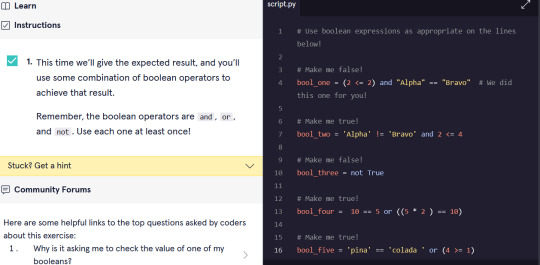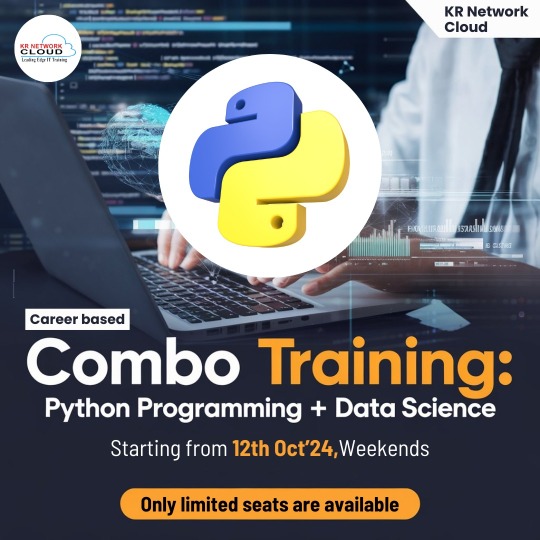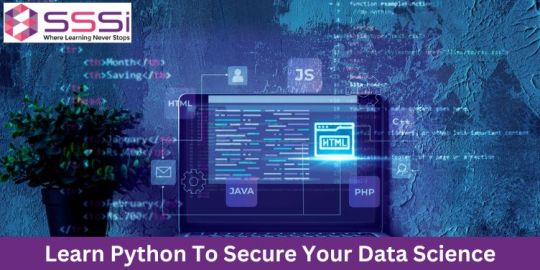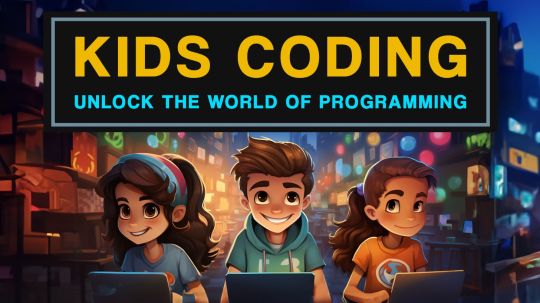#Learning Python for Beginners
Explore tagged Tumblr posts
Text
Learning Python for Beginners : A Step-by-Step Guide 2023
Python, a versatile and beginner friendly programming language, has gained immense popularity in recent years Whether
0 notes
Text

The Evolution of Hacking: From Cyberpunk Fantasy to Real-World Reality
Hacking has been a part of internet culture for as long as there’s been an internet to hack. For some, it’s a rebellious act—tearing down the walls built by corporations or governments. For others, it’s an artform, a way of playing with systems, seeing how far you can push boundaries. But what does hacking really mean today? And why does it still capture our imagination?
Historically, hacking has been portrayed as a dark art. Think back to movies like The Matrix or Hackers—hackers as antiheroes, taking down the system from the inside. But while these portrayals are often exaggerated, they did reflect a truth: hacking represents a desire to reclaim power and control. In a world where tech companies and governments collect personal data and monitor our every move, hacking is one way to level the playing field.
In the real world, hacking has taken on many forms. There’s ethical hacking, where people are hired to test systems for vulnerabilities, and there’s black-hat hacking, which involves illegal activities. But even those who engage in illegal hacking often see themselves as part of a larger rebellion against control and surveillance.
It’s easy to romanticize hacking, to see it as this cool, underground world of rebellious acts and revolutionary potential. But the reality is more complex. Hacking today isn’t just about taking down the man; it’s about finding flaws, building something new, or even just learning how things work beneath the surface. It’s about pushing boundaries, challenging authority, and questioning the systems that run our world.
And perhaps that’s the real reason hacking still resonates with so many people. It’s not just a skill or a rebellion—it’s a form of empowerment. It’s the ability to break free from the constraints placed on us, even if only for a moment.
In a world where everything feels so rigid, so controlled, hacking is the ultimate act of freedom. It’s a reminder that the digital world is malleable, that we can create our own paths through it, and that the rules are often made to be broken.
#hacking#ethical hacking#wifi hacking#password hacking#hacking techniques#hacking tools#atm hacking#hacking guide#hacking skills#hacking device#israel hacking#hacking mindset#israeli hacking#hacking tutorial#wireless hacking#black hat hacking#whatsapp hacking#python for hacking#hacking windows 11#how to learn hacking#government hacking#wifi password hacking#beginner hacking guide#why russians are hacking#state sponsored hacking
8 notes
·
View notes
Text
Started a course I found for learning programming earlier and did you guys know. It's all math
#i was so caught up in the delight of learning computer program i forgot for a moment that computers were all math#dhdDNDJA#I'm gonna try though. the MIT open source whatever it is has a beginner's programming course using python 3 so 🤷♂️ why not
3 notes
·
View notes
Text

MUAHAHAHAHAHAAHAAHAHAAHAHAAHAHAHAHA FUCK YOU BOOLEANS I GOT IT RIGHT HAHAHAHAhahahaahah
(me on day 3 of learning python)
#coding#boolean#i fucking hate this#whose your bitch now#python#beginner coder#literally just started learning#I love code academy#its very helpful so far
22 notes
·
View notes
Text
youtube
3 notes
·
View notes
Text

🚀 Ready to become a Full Stack Python Pro? 🐍💻 Unlock your tech potential with up to 50% OFF on our Full Stack Python Training at eMexo Technologies! 🎯 Dive into real-world projects, hands-on coding, and expert guidance. 🔥
🎓 Why wait? This is your chance!
CLICK THE LINK https://www.emexotechnologies.com/ to grab this amazing offer before it’s gone! 🏃♂️💨
💡 What You'll Gain:
✔️ Full Stack Development Skills
✔️ Python Mastery
✔️ Industry-Ready Expertise
🔥 Hurry, limited spots available! Don’t wait – get ahead in your career NOW!
For Get More Information:
📞 Phone: +91 9513216462
💻 YouTube: https://youtu.be/Rt9pTK8MMUw?si=a38J9LzSAJx6maoh
#python#python developers#pythonprogramming#python training#python for beginners#coding#emexotechnologies#bangalore#electroniccity#traininginstitute#education#learning#course#training#tech education#tech skills#career growth
2 notes
·
View notes
Text
Unlock the Power of Python Programming: A Complete Guide
Python programming has become one of the most sought-after skills in the world of technology. Its simplicity, flexibility, and vast ecosystem of libraries make it a top choice for both beginners and experienced developers. In this guide, we will explore various aspects of Python programming, from basic concepts to advanced applications like machine learning and web development.
Python Programming: A Beginner-Friendly Language
Python programming is renowned for its readability and straightforward syntax, making it ideal for beginners. Whether you are just starting to code or transitioning from another language, Python offers a smooth learning curve. Key Python programming concepts include variables, data types, and control structures, which are essential for writing functional code.
youtube
Python Data Structures: Organizing Data Efficiently
One of the core strengths of Python programming is its rich set of data structures. Lists, dictionaries, tuples, and sets help you store and manage data effectively. Understanding Python data structures allows you to create more efficient programs by organizing and manipulating data effortlessly.
Functions in Python Programming: Building Reusable Code
Functions are a fundamental part of Python programming. They allow you to break down complex problems into smaller, reusable chunks of code. Python functions not only promote code reusability but also make your programs more organized and easier to maintain.
Loops in Python Programming: Automating Repeated Tasks
Loops are an essential feature in Python programming, allowing you to perform repeated operations efficiently. With Python loops such as for and while, you can iterate over sequences or perform tasks until a specific condition is met. Mastering loops is a key part of becoming proficient in Python.
Object-Oriented Programming in Python: Structured Development
Python programming supports object-oriented programming (OOP), a paradigm that helps you build structured and scalable software. OOP in Python allows you to work with classes and objects, making it easier to model real-world scenarios and design complex systems in a manageable way.
Python Automation Scripts: Simplify Everyday Tasks
Python programming can be used to automate repetitive tasks, saving you time and effort. Python automation scripts can help with file management, web scraping, and even interacting with APIs. With Python libraries like os and shutil, automation becomes a breeze.
Python Web Development: Creating Dynamic Websites
Python programming is also a popular choice for web development. Frameworks like Django and Flask make it easy to build robust, scalable web applications. Whether you're developing a personal blog or an enterprise-level platform, Python web development empowers you to create dynamic and responsive websites.
APIs and Python Programming: Connecting Services
Python programming allows seamless integration with external services through APIs. Using libraries like requests, you can easily interact with third-party services, retrieve data, or send requests. This makes Python an excellent choice for building applications that rely on external data or services.

Error Handling in Python Programming: Writing Resilient Code
Python programming ensures that your code can handle unexpected issues using error handling mechanisms. With try-except blocks, you can manage errors gracefully and prevent your programs from crashing. Error handling is a critical aspect of writing robust and reliable Python code.
Python for Machine Learning: Leading the AI Revolution
Python programming plays a pivotal role in machine learning, thanks to powerful libraries like scikit-learn, TensorFlow, and PyTorch. With Python, you can build predictive models, analyze data, and develop intelligent systems. Machine learning with Python opens doors to exciting opportunities in artificial intelligence and data-driven decision-making.
Python Data Science: Turning Data Into Insights
Python programming is widely used in data science for tasks such as data analysis, visualization, and statistical modeling. Libraries like pandas, NumPy, and Matplotlib provide Python programmers with powerful tools to manipulate data and extract meaningful insights. Python data science skills are highly in demand across industries.
Python Libraries Overview: Tools for Every Task
One of the greatest advantages of Python programming is its extensive library support. Whether you're working on web development, automation, data science, or machine learning, Python has a library for almost every need. Exploring Python libraries like BeautifulSoup, NumPy, and Flask can significantly boost your productivity.
Python GUI Development: Building User Interfaces
Python programming isn't just limited to back-end or web development. With tools like Tkinter and PyQt, Python programmers can develop graphical user interfaces (GUIs) for desktop applications. Python GUI development allows you to create user-friendly software with visual elements like buttons, text fields, and images.
Conclusion: Python Programming for Every Developer
Python programming is a versatile and powerful language that can be applied in various domains, from web development and automation to machine learning and data science. Its simplicity, combined with its extensive libraries, makes it a must-learn language for developers at all levels. Whether you're new to programming or looking to advance your skills, Python offers endless possibilities.
At KR Network Cloud, we provide expert-led training to help you master Python programming and unlock your potential. Start your Python programming journey today and take the first step toward a successful career in tech!
#krnetworkcloud#python#language#programming#linux#exams#coding#software engineering#coding for beginners#careers#course#training#learning#education#technology#computing#tech news#business#security#futurism#Youtube
2 notes
·
View notes
Text

Learn Python To Secure Your Future In Data Science
Python is one of the most important coding or programming languages that is used by more than 8 million programmers as their main programming language.Now let's talk about how to learn Python. Python language is the basic and the easiest language compared to any other language.
To more info Visit us :- https://www.sssi.in/blog/engineering/learn-python-to-secure-your-future
#learn python#online training python#python developers#python basics#learn python for data analysis#python programming#coding python for beginners
3 notes
·
View notes
Text
Unleash Your Child's Coding Potential with Kids Coding PRO!
We're excited to share that Kids Coding PRO has ignited a coding revolution among young minds. Our students have embarked on an incredible journey, where coding is no longer a mystery but a tool for boundless creativity. From developing fun games to crafting interactive websites.
To read more click here <<

🚀 Your Path to Coding Mastery:
Step 1: Dive into the World of Coding: Start your coding adventure with ease, even if you're a complete beginner.
Step 2: Explore the Magic of Programming: Discover the secrets behind creating games, apps, and websites.
Step 3: Hands-On Coding: Get ready to code like a pro with practical projects that bring your ideas to life.
To Get full course click here <<
🎮 Fun and Engaging Learning:
Say goodbye to boring coding classes! Kids Coding PRO makes learning fun and interactive. Learn by doing, with engaging projects and challenges that boost creativity.
💡 Ready-to-Use Coding Resources:
No need to start from scratch! We provide you with templates and ready-to-use code snippets. Customize and build your own projects, from games to websites, with confidence.Join us in the world of coding excellence with Kids Coding PRO. Unleash your child's potential and equip them with skills for a digital future!
Enroll Now and Unlock the World of Coding! Click here <<

#coding#hello world#how to unlock the selection in word#unlock all house miga world#free unlock all housr toca life world#how to access block site whole world#secret to unlock all house toca life world#how to learn coding#day in the life of a software engineer#how to learn coding for beginners#how to learn coding fast#toca life world free code#hello world program#unlock android#hello world kattis python#hello world kattis#hello world kattis solution#tumblr
2 notes
·
View notes
Text
How to Learn Python for Beginners: Tips and Resources

Python has become one of the most popular programming languages in the world, known for its simplicity and versatility. Whether you are a complete novice or someone looking to expand your programming skills, learning Python can open up a world of opportunities in fields such as web development, data analysis, artificial intelligence, and more. This guide, "How to Learn Python for Beginners: Tips and Resources," aims to provide you with practical advice and valuable resources to kickstart your Python learning journey.
Understanding Python
Before diving into the learning process, it’s essential to understand what Python is and why it is so widely used. Python is an interpreted, high-level programming language that emphasizes code readability and simplicity. Its syntax is designed to be intuitive, making it an excellent choice for beginners. Python supports multiple programming paradigms, including procedural, object-oriented, and functional programming, which allows developers to choose the best approach for their projects.
Setting Up Your Environment
The first step in learning Python is to set up your development environment. Here’s how to get started:
Install Python: Download the latest version of Python from the official website (https://www.python.org/downloads/). The installation process is straightforward, and you can choose to install additional tools like pip, which is a package manager for Python.
Choose an Integrated Development Environment (IDE): An IDE is a software application that provides comprehensive facilities to programmers for software development. Popular IDEs for Python include:PyCharm: A powerful IDE specifically designed for Python development. Visual Studio Code: A lightweight and versatile code editor with excellent Python support. Jupyter Notebook: Ideal for data analysis and visualization, allowing you to create and share documents that contain live code.
Set Up a Virtual Environment: It’s a good practice to create a virtual environment for your Python projects. This allows you to manage dependencies and avoid conflicts between different projects. You can create a virtual environment using the following command:bashRunCopy code1python -m venv myenvActivate it with:On Windows: myenv\Scripts\activate On macOS/Linux: source myenv/bin/activate
Learning Resources
With your environment set up, it’s time to explore various resources to learn Python effectively. Here are some recommended resources:
Online Courses:Coursera: Offers courses like "Python for Everybody" by the University of Michigan, which is perfect for beginners. edX: Provides a range of Python courses from institutions like MIT and Harvard. Udemy: Features numerous Python courses, often at discounted prices, covering everything from basics to advanced topics.
Books:"Automate the Boring Stuff with Python" by Al Sweigart: A great book for beginners that focuses on practical applications of Python. "Python Crash Course" by Eric Matthes: A hands-on introduction to programming with Python, ideal for beginners. "Learn Python the Hard Way" by Zed A. Shaw: A popular book that emphasizes practice and repetition.
Interactive Platforms:Codecademy: Offers an interactive Python course that allows you to write code directly in your browser. LeetCode: A platform for practicing coding problems, which can help you improve your problem-solving skills in Python. HackerRank: Provides coding challenges and competitions to test your skills and learn from others.
YouTube Channels:Corey Schafer: Offers a series of Python tutorials that cover various topics in depth. Programming with Mosh: Provides beginner-friendly Python tutorials that are easy to follow. freeCodeCamp.org: Features comprehensive Python courses and tutorials for beginners.
Tips for Effective Learning
As you embark on your Python learning journey, consider the following tips to enhance your experience:
Practice Regularly: Consistency is key when learning a new programming language. Set aside time each day or week to practice coding. The more you code, the more comfortable you will become with Python.
Work on Projects: Apply what you learn by working on small projects. This could be anything from a simple calculator to a web scraper or a personal website. Projects help reinforce your knowledge and provide practical experience.
Join a Community: Engage with other learners and experienced developers by joining online communities such as Stack Overflow, Reddit (r/learnpython), or Python Discord servers. These platforms allow you to ask questions, share your progress, and learn from others.
Utilize Documentation: Familiarize yourself with the official Python documentation (https://docs.python.org/3/). It is a valuable resource that provides detailed information about Python’s features, libraries, and best practices.
Learn by Teaching: One of the best ways to solidify your understanding of a topic is to teach it to someone else. Consider writing blog posts, creating tutorials, or explaining concepts to friends or peers.
Stay Curious: Python is a vast language with numerous libraries and frameworks. Explore different areas such as web development (Django, Flask), data analysis (Pandas, NumPy), and machine learning (TensorFlow, scikit-learn) to find what interests you the most.
Conclusion
Learning Python can be an exciting and rewarding journey, especially for beginners. By setting up your environment, utilizing the right resources, and following effective learning strategies, you can build a strong foundation in Python programming. Remember that persistence and practice are essential to mastering any skill, so stay motivated and keep coding!
1 note
·
View note
Text
Python Programming Course with Certification – Live Online
Join Sunbeam’s Live Online Python Programming Course and kickstart your journey in coding, automation, data analysis, and AI. Guided by expert Mr. Nilesh Ghule, this course offers a structured curriculum, hands-on practice, and live Q&A. 📅 Start Date: 2nd June 2025 🕒 Timing: 7:00 PM – 9:00 PM (Mon to Fri) 💰 Fees: ₹8100 (Inclusive GST) 🎓 Certification + Project + Group Discount 🔗 Register now at www.sunbeaminfo.in 📞 Contact: 82 82 82 9806
✅ Bonus Group Offer:
👨👩👧👦 Team of Five, Time to Thrive! Get 20% OFF on learning when enrolling in a group of five!
✅ What You'll Learn:
Python basics to advanced topics
Data analysis using NumPy & Pandas
Visualization with Matplotlib
Web & functional programming
Image processing using OpenCV
Real-time projects and problem-solving
✅ Who Should Join:
College students, freshers, and job seekers
Working professionals aiming to upskill
Anyone with basic programming knowledge
#“Python online course”#“Learn Python in Pune”#“Python training with certification”#“Live Python classes”#“Python classes for beginners”#“Best Python course in India”#“Python for data analysis”#“Instructor-led Python training”#“Affordable Python course”#“Python programming course Pune”#“Python course with projects”#“Data science Python course”
0 notes
Text
Is Python Hard to Learn Without a Tech Background?
In today’s digital world, Python is everywhere, from powering AI models to automating repetitive tasks at work. But if you don’t have a technical background, you may wonder. Python is one of the most beginner-friendly programming languages available, and it’s an excellent choice even for non-tech learners. Let’s explore why.
Introduction: Why Python Appeals to Non-Tech Learners
Whether you’re in marketing, finance, teaching, or customer service, you’ve probably seen Python mentioned in job descriptions or professional development programs. There’s a good reason for that.
Python is known for:
Simple and readable syntax
Strong community support
Wide range of real-world uses
Growing demand in the job market

According to the TIOBE Index, Python is consistently ranked among the top three programming languages globally. More importantly, it’s being used far beyond traditional software development roles.
Let’s break down how Python can be learned without a technical background, and why now is the perfect time to get started.
Why Python Is Ideal for Beginners
1. Clean and Easy-to-Read Syntax
Python uses plain English-like commands, making it easy to understand even for those with no coding experience.
Example:
python
print("Hello, world!")
You don’t need to memorize complex symbols or statements. A line like the one above prints a message to the screen simple and intuitive.
2. No Need for Prior Coding Knowledge
Python doesn’t require knowledge of hardware, networking, or complex algorithms to get started. You can begin with basic concepts such as:
Variables
Loops
Conditions
Functions
These are explained clearly in most Python training online courses and are easy to practice in beginner-friendly environments.
3. Beginner Resources and Courses Are Abundant
There are many structured learning paths, especially Python certificate programs, designed for beginners with no prior experience. These programs teach:
Step-by-step Python programming
Real-world projects
Hands-on coding challenges
Career-focused applications
If you're looking for the best Python course for beginners, make sure it includes project-based learning and real-world examples.
Real-World Applications That Don’t Require a Tech Background
Python isn’t just for developers. Professionals in business, design, education, and analysis are using it every day.
1. Data Analysis and Reporting
Python is widely used for automating reports and analyzing data.
Example:
python
import pandas as pd
data = pd.read_csv('sales.csv')
print(data.describe())
A non-programmer in sales can quickly summarize key sales metrics using this simple script.
2. Automating Tasks
Repetitive tasks like renaming files, organizing spreadsheets, or emailing reports can be automated using Python.
3. Content and Marketing
Marketers use Python to scrape websites for competitive research or analyze campaign performance.
4. Teaching and Education
Teachers use Python Program Ideas to create mini-games, quizzes, or even basic simulations for students.
Common Challenges and How to Overcome Them
While Python is beginner-friendly, non-tech learners can still face a few hurdles. Here’s how to tackle them:
1. Fear of “Code”
Many beginners are intimidated by the idea of “coding.” The truth? Coding is just writing instructions for the computer in a structured way. Python makes this easier with its human-readable syntax.
2. Technical Jargon
Terms like “variables,” “loops,” and “functions” might seem foreign. But once explained in plain language, they’re easy to grasp. Good instructors and online class Python modules focus on relatable explanations and simple exercises.
3. Lack of Hands-On Practice
Learning by reading isn’t enough. You need to build, break, and fix things. Choose the best online course on Python that includes hands-on projects and coding environments.
Step-by-Step Python Learning Plan for Non-Tech Beginners
Here’s a practical learning plan tailored for non-technical learners:
Step 1: Understand Why You’re Learning Python
Define your goals: automating tasks, data analysis, new career
Choose a focus area: web, data, automation, AI
Step 2: Enroll in a Beginner Course
Look for:
Structured Python certification courses
Simple, task-based lessons
Code-along videos
Real-world mini-projects
Step 3: Practice Regularly
Use an online certification in Python course with built-in editors or notebooks to practice daily.
Step 4: Build Projects
Try Python Program Ideas such as:
A basic calculator
A to-do list manager
Expense tracker
Weather app
Step 5: Get Certified
Certification proves your skills and boosts your resume. Look for reputable python online certification programs that include exams and projects.
Python Learning Tools and Environments for Beginners
Even without installing anything, you can code in Python using beginner-friendly platforms. However, for deeper skills, it’s better to install Python locally and use environments like:
IDLE (Python’s default editor)
Jupyter Notebook (great for data and notes)
VS Code (for larger projects)
These tools are free and often used in best python classes online.
Career Benefits of Learning Python as a Non-Technical Professional
1. Cross-Functional Job Roles
Python enables professionals to move into hybrid roles like:
Data-driven marketing analyst
AI-assisted customer support manager
Automation consultant
Business analyst with coding skills
2. Higher Salaries
According to Glassdoor and Indeed, Python-skilled professionals earn 20%–40% more on average even in non-tech roles.
3. Job Security and Relevance
As industries evolve with AI, automation, and data science, those who know how to work with Python are more likely to stay relevant.
What to Look for in a Python Course If You Don’t Have a Tech Background
Here’s what defines the best place to learn Python for non-tech users:
Feature
Description
Beginner-Friendly Curriculum
Uses simple language and real-life examples
Project-Based Learning
Helps apply skills in realistic scenarios
Supportive Instructors
Guides who explain complex topics simply
Flexible Schedules
Allows learning alongside your current job
Python Certificate Programs
Offers certification upon course completion
Key Takeaways
Python is one of the easiest programming languages to learn, even without a tech background.
Real-world Python applications are vast, including marketing, education, data analysis, and automation.
A step-by-step, hands-on learning path with supportive guidance is key to success.
Certifications and structured courses boost your learning outcomes and career potential.
The best Python course for beginners is one that includes practical projects, simple explanations, and career alignment.
Conclusion
Python isn’t hard to learn, even if you come from a non-technical background. With the right guidance, hands-on projects, and consistent practice, anyone can master Python and open new career opportunities.
Ready to start? Enroll in H2K Infosys’ Python course today for real-world projects, expert mentorship, and career-focused certification. Master Python the easy way no tech background required.
#learn python#Python training online#python online certification#Python certification course#python certificate programs#online class python#online certification in python#best python classes online#Python Program Ideas#best online course on python#best place to learn python#best Python course for beginners
0 notes
Video
youtube
#youtube#Deep learning with pytorch - full course#Deep learning pytorch course#Pytorch full course for beginners#Learn python programming for beginners
0 notes
Text
youtube
0 notes
Text
#AI Career#BCA to AI#Machine Learning for Beginners#Python for AI#AI Projects Portfolio#Data Science Fundamentals#TensorFlow Tutorials#Deep Learning Essentials#AI Internships#Building AI Resume#AI Communities & Networking#Math for AI#NLP Projects#Image Recognition Guide
0 notes
Text

Home Automation Electronics Kit
Discover the fascinating world of smart home technology with this interactive learning kit, designed to spark curiosity in young minds. Combining the versatile ESP32 board with engaging story-based activities, this kit immerses children in the exciting world of home automation. Packed with a variety of sensor modules and programming tools, it allows young learners to build, experiment, and protect a smart home while honing essential STEM skills. Perfect for nurturing creativity and problem-solving abilities, this hands-on kit offers a fun and accessible introduction to the future of technology. Ready to dive in? Click the link to learn more and make your purchase!
#Home Automation Electronics Kit#Python and AI learning kit#Raspberry Pi AI kit#AI-powered electronics projects#AI learning kits#Robotics kit for beginners#Build your own AI assistant#DIY AI learning kit#Machine learning for beginners#Generative AI learning projects
0 notes